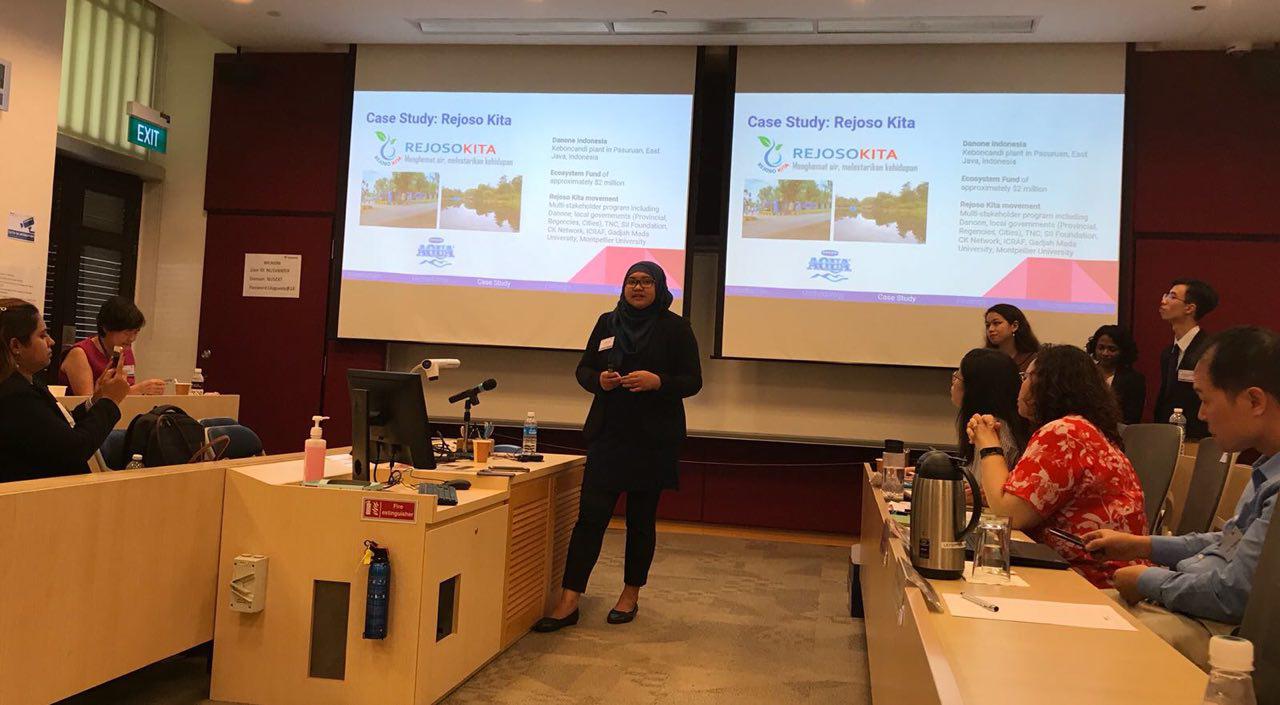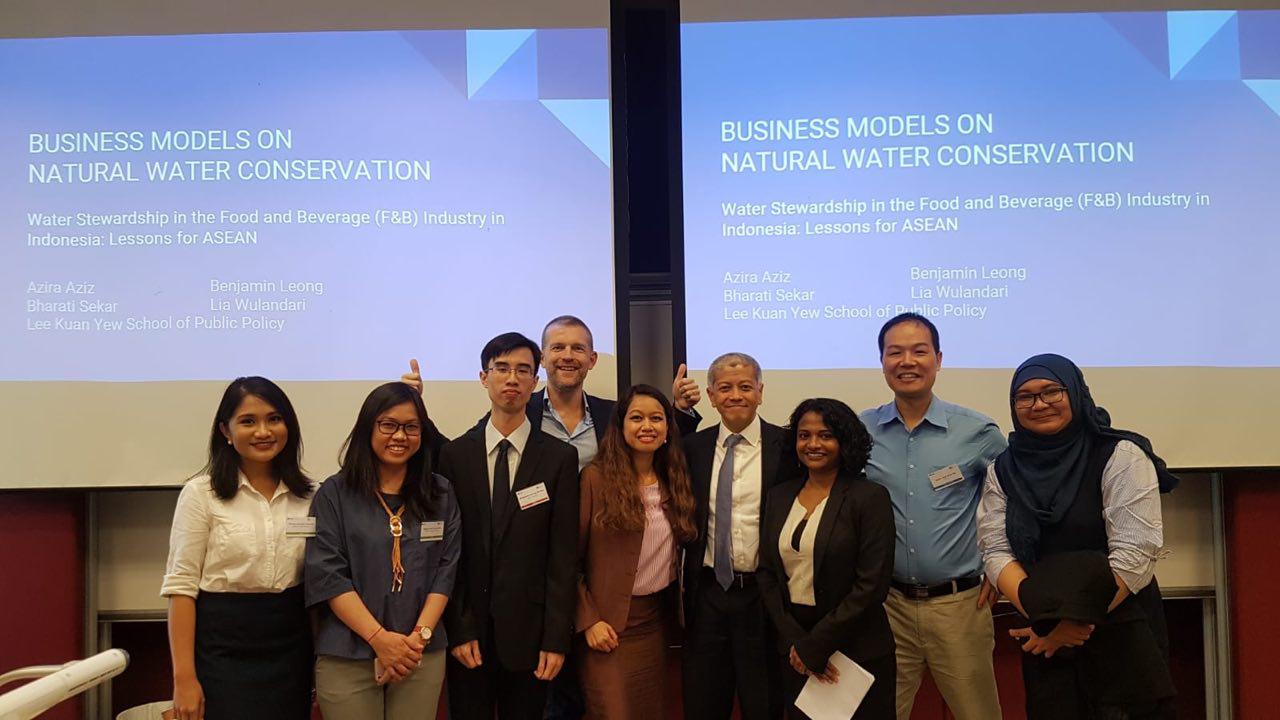ACN supports research on water stewardship by LKYSSP student group
The ASEAN CSR Network is the client of a student research group from the National University of Singapore's Lee Kuan Yew School of Public Policy (LKYSPP) for their Policy Analysis Exercise (PAE). This is in partial fulfillment of their graduate program, Master in Public Policy.
The group members are: Ms Azira Aziz, Mr Benjamin Leong, Ms Bharati Sekar, and Ms Lia Wulandari. They were supervised by the Prof. Aldred Wu of LKYSPP.
|
ACN's Programme Manager Nguyen Thi Phuong Thao and Communications Manager Princess Meeralith Celestino |
|
 |
On 25 April 2018, the student group presented their research before an academic panel during the school's PAE Conference. ACN's Senior Manager Nguyen Thi Phuong Thao, and Communications Manager Princess Meeralith Celestino also attended the group's presentation.
Entitled "Business Models for Natural Water Conservation: Food & Beverage Water Stewardship in Indonesia and Association of Southeast Asian Nations (ASEAN)", the study delved into F&Bcompanies and their operations in the region, with a special focus on Indonesia. It examines whether companies operating across multiple jurisdictions adopt certain common minimum standards of water conservation, irrespective of the legally mandated requirements in the country they operate in.
The study found that customers in ASEAN, specifically in Indonesia, might not be willing to pay a premium on products simply because a company has invested in water stewardship initiatives. Thus, many companies find little benefit in stewardship measures, which may be costly in the short term. However, the companies interviewed invest in water management and stewardship initiatives as they feel there is still a strong business case for responsible use of water.
Futhermore, the study also revealed that the primary factor of companies' adherence to responsible water practices is the degree of enforcement present in the country of operation, rather than the amount of regulation.

